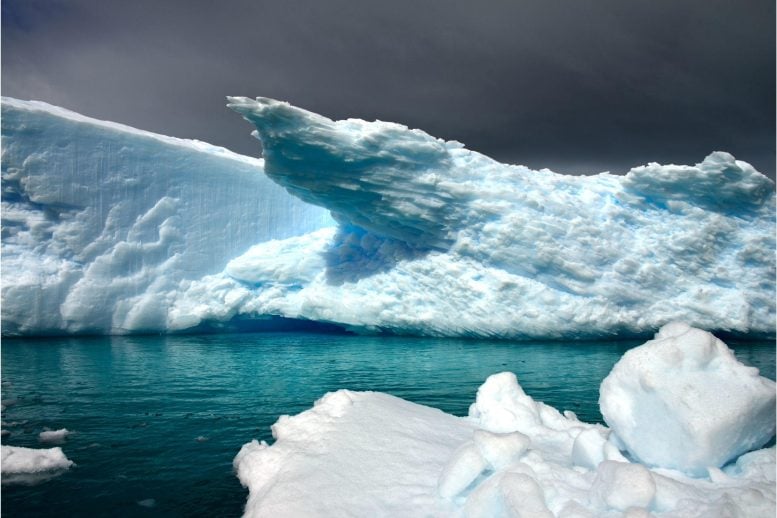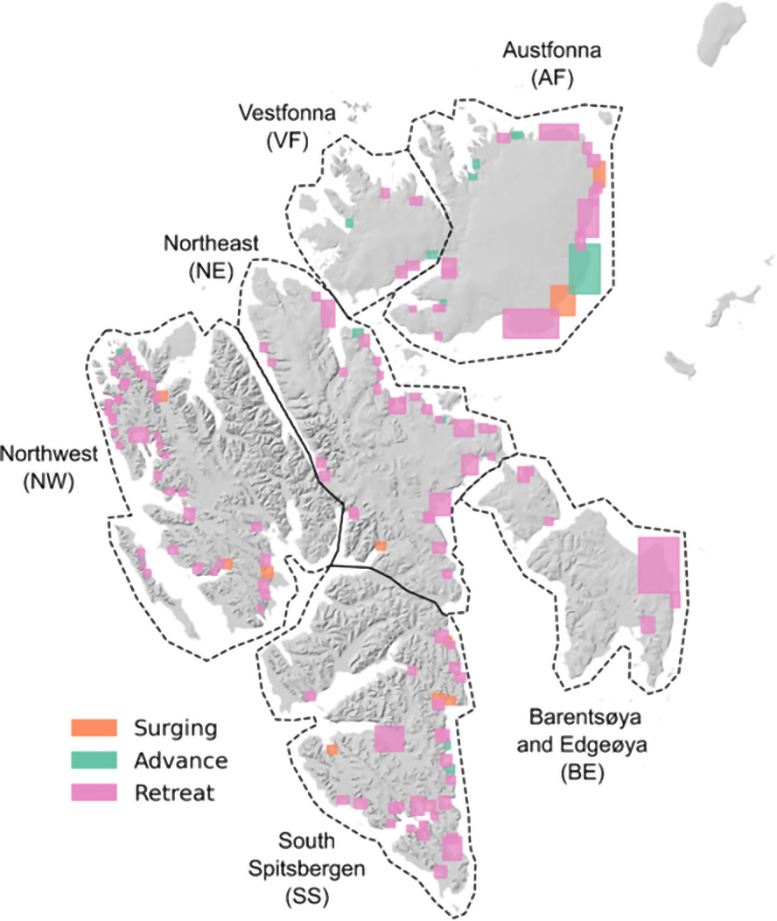
It is not a secret that glaciers are melting, and that it causes a problem with sea levels rising, but a new way of reading, collecting, and analyzing data using AI, can make us better understand what is happening with the glaciers in the Arctic.
A dedicated team of researchers recently presented a new high-resolution calving front dataset from 149 glaciers in Svalbard spanning from 1985 to 2023. This innovative dataset, featured in the Earth System Science Data journal, offers an important tool to better understand the mechanisms behind glacier calving, or the breakup of icebergs, which can help to enhance our understanding of the climatic drivers behind glacier loss in Svalbard and the Arctic.
The mass loss of glaciers has accelerated in the past several decades, significantly contributing to global sea-level rise. However, many of the mechanisms behind glacier loss, in particular calving dynamics of marine-terminating glaciers, have not been well understood. “This new study uses a state-of-the-art deep learning model to generate a 38-year record of calving front changes for Svalbard tidewater glaciers with an unprecedented density, using high-resolution satellite images,” says Dr. Tian Li, a researcher in the EU funded Arctic PASSION project based at Bristol Glaciology Centre and the lead author of the study.

The dataset includes almost 125,000 individual calving front traces with the result showing a retreating trend for the majority of Svalbard’s glaciers. Using the extensive satellite data catalog, the researchers were able to analyze seasonal and annual variations, as well as capture the timing of surging events, where the glacier moves substantially over a short period. These findings can help to better understand and predict future glacier loss in the Arctic.
According to Tian Li, “This dataset can be used to improve the mass balance assessments for Svalbard tidewater glaciers. Additionally, it enables the exploration of the drivers and processes controlling glacier calving. This is crucial for understanding the calving dynamics, a key indicator of how glaciers respond to climate change.”
“The dataset is part of the outputs from Arctic PASSION’s work on building an improved observing system for the key climate variables of the Arctic Cryosphere system and will also be integrated into Arctic PASSION’s work to build an operational end-to-end forecasting and monitoring system for Arctic land ice.” Says Tian Li. Going forward, the team of researchers plans to apply the methodology to all the other tidewater glaciers in the Arctic.
Reference: “A high-resolution calving front data product for marine-terminating glaciers in Svalbard” by Tian Li, Konrad Heidler, Lichao Mou, Ádám Ignéczi, Xiao Xiang Zhu and Jonathan L. Bamber, 20 February 2024, Earth System Science Data.
DOI: 10.5194/essd-16-919-2024
An online platform of the Svalbard data product can be found here: https://maps.heidler.info/svalbard/
2 Comments
Arctic. NOT Artic.
However, the USA has evolved Antarctica to Anartica, and Adolf to Ay Dolf; and so our English language changes.
I found several instances of “Arctic” spelled correctly. However, when I searched for “Artic,” the search did not find ANY.
If language drift results in confusion or ambiguity, it is not a good thing.